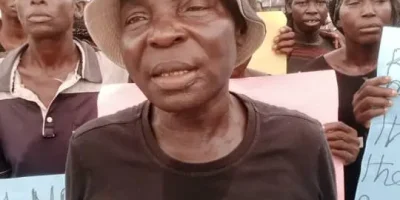- OBJ calls it criminal
- SERAP asks National Assembly to ask questions
- Utomi warns against another debt trap
Abiodun OBA
Many Nigerians have committedly reacted to President Muhammadu Buhari government’s loan taking which is gradually turning the country into unpardonable debtor nation.
Former President Olusegun Obasanjo on the sidelines of an event in South Africa questioned President Buhari’s plan to borrow more money, declaring that borrowing to accumulate debt for the next generation is criminal.
Obasanjo who gave his opinion in an interview with Channels Television, cautioned that if the existing debt is left unserviced or unpaid, it might become a problem for successive administrations.
While noting that borrowing is not a problem, the former Nigerian leader stated that what could be a problem would be what one is borrowing for and the plan or capacity to pay back.
“But if you are borrowing and accumulating debts for the next generation and the next generation after them, it is criminal. What are you borrowing for?” Obasanjo asked.
“If we are borrowing for recurrent expenditure, it is the height of folly. If we are borrowing for development that can pay for itself, that is understandable. Then the payment, how long will it take to pay itself?”
The ex-president recalled that in 1999 when he came to power, the country was spending $3.5 billion to service debts that kept on increasing.
“When I came into government as elected President, we were spending $3.5 billion to service debts. Even with that, our quantum of debts was not going down.”
The Socio-Economic Rights and Accountability Project (SERAP), in its reaction made in an open letter dated 18 September 2021, and signed by SERAP deputy director Kolawole Oluwadare, expressed “concerns about the growing debt crisis to the leadership of the national assembly.
SERAP observed that the growing national debt is clearly not sustainable adding that the country’s public debts have mushroomed with no end in sight.
The organisation called on the Senate President Dr Ahmad Lawan, and Speaker of House of Representatives Mr Femi Gbajabiamila, to reject the fresh request by President Muhammadu Buhari to borrow $4 billion and €710 million.
SERAP, believes Nigeria’s debt crisis is getting out of control, with N11.679 trillion committed into debt servicing between 2015 and 2020, while only N8.31 trillion was expended on capital projects.
It urged the two NASS leaders to request for details of spending of all loans obtained since May 29, 2015 by the government, before acting on the new request.
President Buhari in a letter dated 24 August, 2021, sought the approval of the National Assembly to borrow $4,054,476,863 billion and €710 million, on the grounds of “emerging needs.”
SERAP expressed concern over the lack of transparency and accountability in the spending of loans that have been obtained.
It also expressed worry on the perceived unwillingness or inability of the National Assembly to vigorously exercise its constitutional duties to check the apparently indiscriminate borrowing by the government.”
“The National Assembly should not allow the government to accumulate unsustainable levels of debt, and use the country’s scarce resources for staggering and crippling debt service payments rather than for improved access of poor and vulnerable Nigerians to basic public services and human rights.”
“Accumulation of excessive debts and unsustainable debt-servicing are inconsistent with the government’s international obligations to use the country’s maximum available resources to achieve progressively the realisation of economic and social rights, and access of Nigerians to basic public services,” SERAP said.
In his own reaction, Professor Pat Utomi, a political economist, warned that Nigeria runs the risk of entering another debt trap if it keeps borrowing to fill the needs of recurring expenditure spending.
He urged that Nigeria develop a clear national strategy, which looks at how growth can take place in sustainable manner in the economy, and then borrow.
“Our country is going through a very trying period. This is a time for statesmen to emerge, not people arguing partisan position on things.
“The Nigerian economy, is not growing in any way or shape that can accommodate its needs, population growth, rates, location on scale of poor countries. It means that in terms of absolute numbers of people living in poverty, that this is one of the most terrible places to live in on earth.”
“In terms of statistic’s being said, yes, in an absolute sense, the fact of borrowing $4billion is not necessarily something that will kill Nigeria, even though if you look at how much of our revenues going into servicing debt, you have to worry.
“However, there is a converse point here. This country needs to grow like crazy, and it cannot grow unless you invest. The real issue is the targeting of borrowed funds.
Do I see the plans that these borrowings will facilitate the diversification of the economy? My straight answer is No, I do not see the plan.
“Am I convinced that the targeting is enough to drive the kind of growth that will facilitate the economy to grow in a sustainable manner? I have not been given enough information to believe that it is the case.”
“One of the reasons Nigeria is where it is today, is that oil price dropped during the heat of last year, compounded by supply chain challenges brought about by the lockdown, which led to revenue shortfall of a significant nature, because we have failed to do something we said we are doing, which is to diversify the base of the Nigerian economy.
“Do I see the plans that these borrowings will facilitate the diversification of the economy? My straight answer is No, I do not see the plan.
“We need to develop a clear national strategy, which looks at how growth can take place in sustainable manner in this economy, then we can borrow, twice or three times as much as we are borrowing, and I won’t be afraid,” he urged
President Buhari last week wrote to the National Assembly, seeking approval to borrow $4,054,476,863 and €710 million in an addendum to the 2018-2020 borrowing plan.
In the letter, the President explained that owing to “emerging needs”, there is a need to raise more funds for some “critical projects”, while seeking the parliament’s nod to also approve grant components of $125 million.
In July, the National Assembly approved the sums of $8.3 billion and €490 million loans contained in the initial 2018-2020 borrowing plan.
The Presidency on Friday listed the projects that the new loans are meant for.








Comments